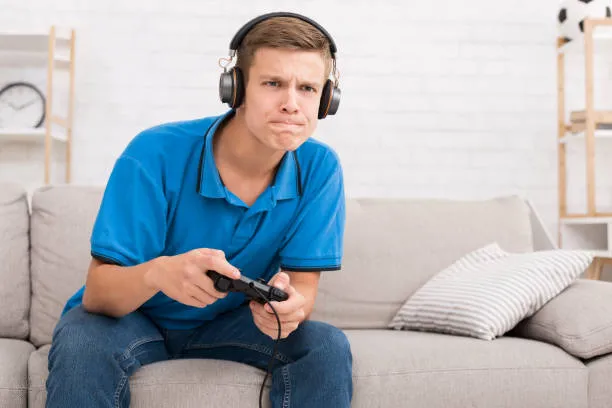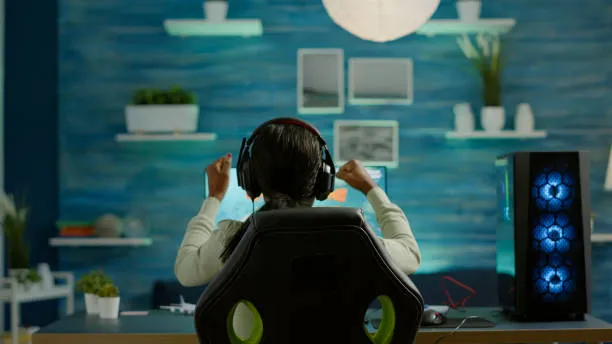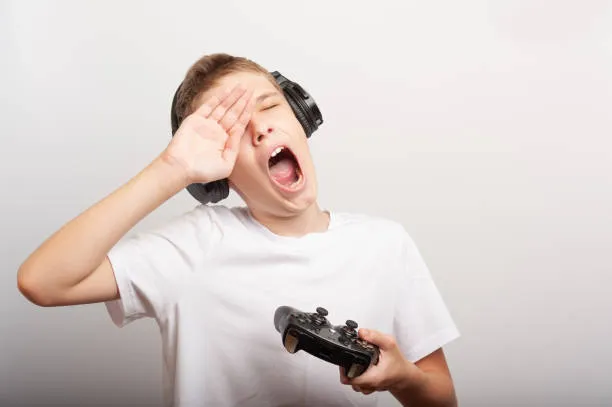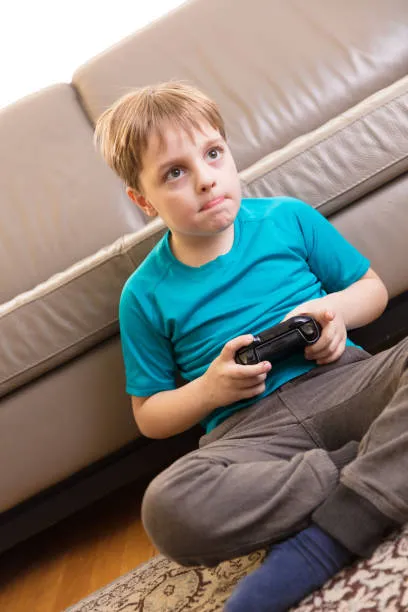Gaming and Mental Health: The Double-Edged Sword

Introduction:
In the digital age, gaming has become one of the most prevalent and culturally influential pastimes. From hyper-realistic role-playing games to casual mobile puzzles, the gaming industry has revolutionized entertainment, capturing the attention of billions globally. However, as the influence of gaming grows, so does its impact on mental health. This impact is complex, acting as both a therapeutic tool and a potential source of mental strain. To truly understand this duality, it is essential to explore the intricate relationship between gaming and mental health, shedding light on its benefits, risks, and the critical balance required to harness its full potential.
The Therapeutic Power of Gaming: More Than Just Entertainment
Gaming isn’t merely a form of escapism; it has evolved into a tool with remarkable therapeutic applications. For individuals struggling with anxiety, depression, or post-traumatic stress disorder (PTSD), games can provide a safe space to process emotions and foster positive coping mechanisms. Role-playing games, for instance, allow players to step into alternate realities, offering a temporary reprieve from real-world stressors. This escape can be vital for mental well-being, enabling players to recharge and confront challenges with renewed vigor.
Moreover, cooperative and multiplayer games encourage social interaction, combating isolation and fostering community. Titles like World of Warcraft, Fortnite, and Among Us connect players worldwide, providing opportunities to form meaningful relationships. These connections can be life-changing for individuals facing loneliness or struggling to maintain social ties due to mental health conditions.
Gamification, or the application of game-like elements in non-gaming contexts, has also gained traction in mental health interventions. Apps designed to improve mindfulness, such as Headspace and Calm, employ gamified rewards to incentivize regular use. Similarly, virtual reality (VR) games have shown promise in treating phobias and anxiety disorders by simulating controlled exposure to fears in a safe environment. These innovative approaches highlight gaming’s potential to revolutionize mental health treatment, creating new pathways for healing and growth.
Cognitive Benefits: Enhancing Skills Through Play
Gaming’s cognitive benefits extend beyond entertainment, significantly influencing problem-solving, critical thinking, and multitasking abilities. Strategy games like StarCraft and Civilization require players to make quick decisions, analyze complex scenarios, and adapt to changing circumstances. These mental exercises can translate to improved performance in real-world tasks, such as managing time effectively or solving workplace challenges.
Fast-paced action games also improve hand-eye coordination and reaction times. Studies suggest that gamers often outperform non-gamers in tasks requiring precision and quick reflexes. Furthermore, puzzles and logic-based games, such as Portal or The Witness, challenge players to think outside the box, fostering creativity and innovation. These skills are invaluable in academic, professional, and personal contexts, demonstrating gaming’s ability to nurture intellectual growth.
Interestingly, gaming has been linked to enhanced memory and spatial awareness. Open-world games like The Legend of Zelda: Breath of the Wild encourage exploration and navigation, stimulating the brain’s hippocampus—the region associated with memory and spatial reasoning. For individuals at risk of cognitive decline, such as those with early signs of dementia, these games could serve as engaging tools to maintain mental agility.
The Dark Side of Gaming: Risks and Challenges
Despite its many benefits, gaming’s impact on mental health is not universally positive. Overindulgence can lead to adverse effects, including addiction, social withdrawal, and heightened anxiety. Gaming disorder, recognized by the World Health Organization (WHO) as a mental health condition, underscores the seriousness of this issue. Individuals with gaming disorder may experience impaired control over gaming habits, prioritizing virtual worlds over essential life responsibilities such as work, education, and relationships.
Prolonged gaming sessions can also exacerbate physical and mental health issues. Sedentary behavior, common among avid gamers, is linked to obesity, cardiovascular problems, and musculoskeletal pain. Additionally, excessive screen time can disrupt sleep patterns, leading to fatigue, irritability, and diminished cognitive function. Sleep deprivation, in turn, can worsen mental health conditions, creating a vicious cycle that is difficult to break.
Gaming environments can sometimes be toxic, exposing players to cyberbullying, harassment, and negative social interactions. The anonymity of online platforms often emboldens individuals to behave aggressively, creating hostile atmospheres that can take a toll on mental well-being. For young players, this exposure can be particularly damaging, contributing to low self-esteem and increased vulnerability to anxiety and depression.
Gaming and Mental Health in Children and Adolescents
For children and adolescents, gaming’s influence on mental health is a double-edged sword. On one hand, age-appropriate games can enhance learning, creativity, and social skills. Educational games, for example, have been shown to improve problem-solving abilities and subject knowledge, making learning more engaging and effective.
On the other hand, excessive gaming during formative years can disrupt crucial developmental processes. Academic performance may suffer if gaming overshadows study time, while social skills can stagnate if virtual interactions replace face-to-face communication. Furthermore, children exposed to violent or age-inappropriate content may become desensitized to aggression or develop distorted perceptions of reality.
Parents and caregivers play a crucial role in mitigating these risks. Setting clear boundaries, monitoring content, and encouraging balanced lifestyles are essential strategies to ensure that gaming remains a positive influence. Open communication about gaming habits and potential issues can also foster trust, enabling children to navigate the digital world responsibly.
Balancing the Scales: Healthy Gaming Habits
To harness the benefits of gaming while minimizing its risks, it is essential to cultivate healthy gaming habits. Moderation is key; setting time limits and taking regular breaks can prevent overindulgence and promote a balanced lifestyle. Integrating physical activity into daily routines can counteract the sedentary nature of gaming, improving overall health and well-being.
Mindful gaming is another valuable approach. Choosing games that align with personal values and goals—whether they emphasize creativity, teamwork, or relaxation—can enhance the gaming experience and contribute positively to mental health. Additionally, players should strive to engage with supportive and inclusive gaming communities, avoiding toxic environments that may harm self-esteem and mental well-being.
For parents and educators, fostering digital literacy is essential. Teaching young people to critically evaluate gaming content, recognize the signs of addiction, and prioritize real-world responsibilities empowers them to make informed choices. Collaborative efforts between the gaming industry, policymakers, and mental health professionals can also drive positive change, ensuring that games are designed and marketed responsibly.
The Role of the Gaming Industry: Responsibility and Innovation
The gaming industry has a significant role to play in promoting mental health. Developers can prioritize features that encourage healthy gaming habits, such as built-in reminders to take breaks or parental control options for younger audiences. Additionally, creating diverse and inclusive narratives can foster empathy and representation, helping players feel seen and valued.
Innovative partnerships between gaming companies and mental health organizations have already begun to emerge. For instance, games like Sea of Solitude and Celeste explore themes of loneliness and resilience, raising awareness about mental health challenges. These titles demonstrate the potential for storytelling to inspire empathy and understanding, breaking down stigma and fostering meaningful conversations.
Furthermore, advances in technology, such as artificial intelligence (AI) and machine learning, can enhance gaming’s therapeutic potential. AI-driven tools could adapt games to individual needs, providing personalized experiences that support mental health goals. For example, a game designed for stress relief might adjust its difficulty or pacing based on the player’s mood, creating a tailored and supportive environment.
The Future of Gaming and Mental Health: Opportunities and Challenges
As gaming continues to evolve, its impact on mental health will likely become even more pronounced. Emerging technologies, such as augmented reality (AR) and the metaverse, promise to create new possibilities for immersive experiences, blending virtual and physical worlds in unprecedented ways. These innovations could enhance therapeutic applications, enabling individuals to confront fears, practice mindfulness, or develop social skills in highly realistic simulations.
However, these advancements also present challenges. The increasing sophistication of games may amplify their addictive potential, making it even more important to establish ethical guidelines and safeguards. Ensuring accessibility and affordability will be crucial to prevent disparities in the benefits of gaming, ensuring that marginalized communities can also reap its rewards.
In academia and research, continued exploration of gaming’s effects on mental health is essential. Longitudinal studies, diverse participant samples, and interdisciplinary collaboration can provide deeper insights into this multifaceted relationship, guiding evidence-based practices and policies. By embracing a holistic approach, society can maximize gaming’s positive impact while addressing its challenges, creating a balanced and inclusive future for all.
Conclusion: Embracing Gaming’s Potential Responsibly
Gaming is undeniably a double-edged sword when it comes to mental health. Its potential to entertain, heal, and connect is matched by its capacity to harm if misused or misunderstood. By acknowledging and addressing both sides of this equation, individuals, families, and the gaming industry can work together to foster a healthier, more balanced relationship with gaming.
Ultimately, the goal is not to vilify or glorify gaming but to harness its power responsibly. By cultivating awareness, encouraging moderation, and embracing innovation, gaming can continue to enrich lives while supporting mental well-being. In the ever-expanding digital landscape, the journey to balance may be challenging, but the rewards—a more connected, creative, and compassionate world—are well worth the effort.



